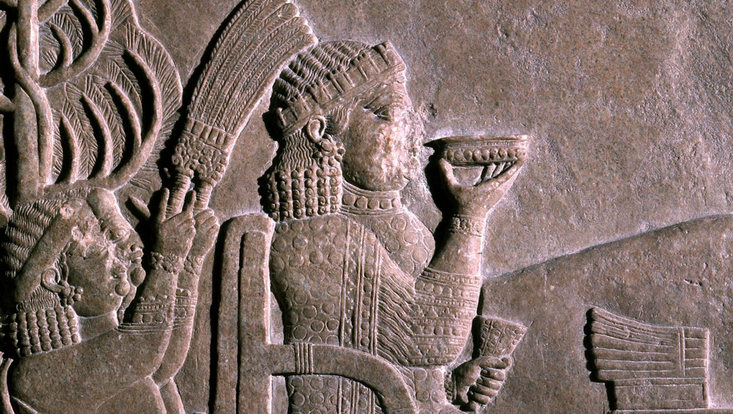Mesopotamian Bulletins: New Episodes Online
20 August 2025

Photo: The Trustees of the British Museum
From the meaning of solar eclipses to the oldest wine in the world: The ‘Mesopotamian Bulletins’ cover a wide range of stories about the ancient world. Eleven new episodes are now available in English translation.
Solar eclipses were considered bad omens indeed. Before making any major decisions, rulers in ancient Mesopotamia would consult trusted astronomers to learn whether the stars favoured their plans, and to ensure the prospect of success. If the signs in the heavens were unfavourable, the wisest course was to postpone the undertaking. The situation turned truly dire if the royal experts foresaw a solar or lunar eclipse on the horizon. By prevailing interpretation, such celestial events signaled nothing less than the impending downfall of the king. However, rulers did not resign quietly to this fate. Instead, they employed a ruse: on the eve of an eclipse, a substitute king would be hastily appointed — sometimes an unknown figure, sometimes a disliked rival — while the true king temporarily vanished from public view. Should the sky then darken, the unfortunate stand-in was quickly dispatched and the rightful ruler reclaimed the throne. An ancient form of political crisis management.
Telling stories like this one, the Mesopotamian Bulletins, a blog by Assyriologist Cécile Michel, brings the everyday reality of Mesopotamian civilization vividly to life for modern readers. While written in an accessible and engaging style, the short articles draw on decades of research and scholarly expertise. The blog also consistently builds bridges to the present day, reflecting on political and social circumstances in modern countries that are home to these ancient sites.
The CSMC regularly publishes English translations of selected posts from the blog, originally written in French. Eleven more essays have just been released in translation. Besides the unfortunate fate of substitute kings, these new articles explore topics such as the story of the world’s oldest wine and the status of historical excavation sites in Syria following the fall of the Assad regime in the winter of 2024.
An overview of all English translations published to date can be found here.

